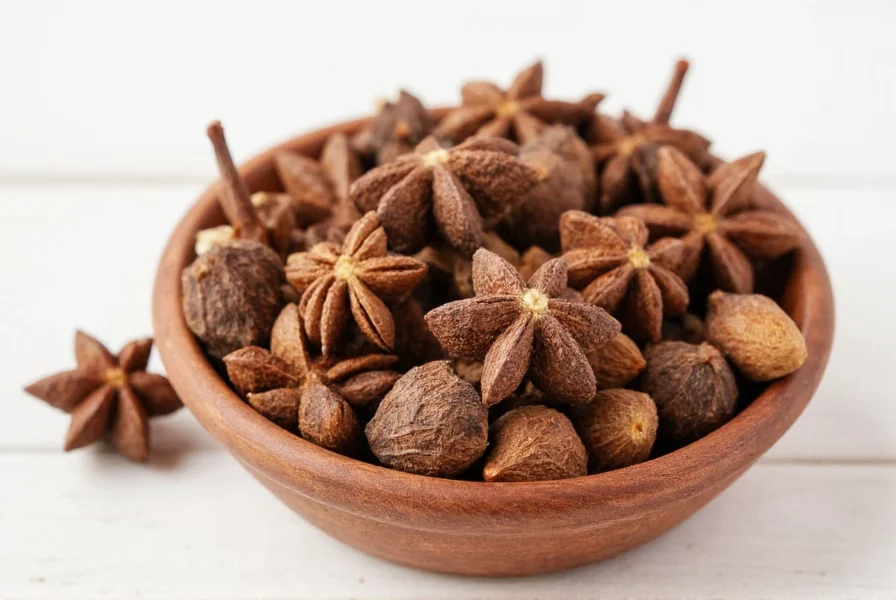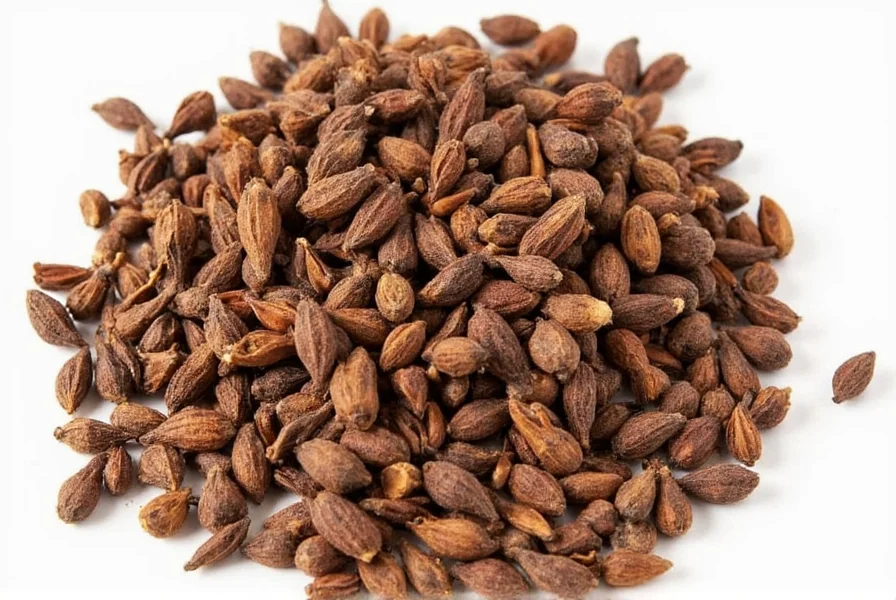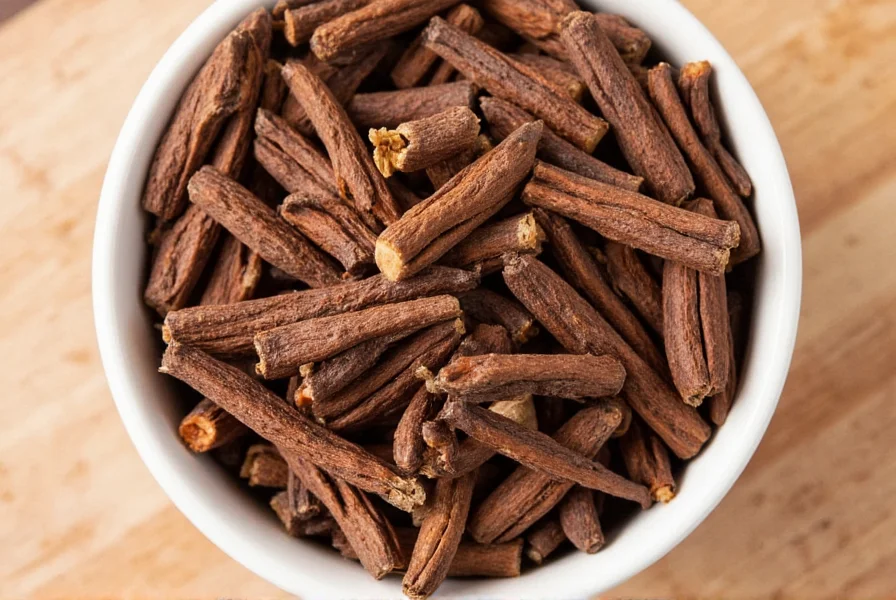When your recipe calls for cloves but your spice cabinet comes up short, knowing reliable alternatives can save your dish. Cloves possess a distinctive warm, sweet, and slightly peppery flavor with aromatic notes that are challenging to replicate exactly. However, several common spices can effectively stand in depending on your specific culinary application.
Understanding Clove Flavor Profile
Cloves contain eugenol, which gives them their characteristic pungent, warm, and slightly bitter-sweet flavor. Whole cloves have more intense flavor than ground cloves due to better preservation of essential oils. When substituting, consider whether your recipe requires:
- Whole cloves (typically for stews, pickling, or as garnish)
- Ground cloves (for baking, spice blends, or rubs)
- The medicinal properties of cloves (for non-culinary uses)
Top Clove Substitutes Ranked by Effectiveness
Not all substitutes work equally well across different recipes. The following table shows the best clove alternatives based on recipe type:
| Substitute | Best For | Ratio | Flavor Notes |
|---|---|---|---|
| Allspice | Baking, mulled wine, stews | 3/4 tsp per 1 tsp cloves | Closest match with similar warm notes |
| Cinnamon | Pumpkin pie, baked goods, oatmeal | 1:1 for ground cloves | Sweeter, less peppery than cloves |
| Nutmeg + Cinnamon | Apple pie, custards, holiday recipes | 1/2 tsp each per tsp cloves | Creates complex warm flavor profile |
| Star Anise | Chinese five-spice, braised meats | 1 star = 4-6 whole cloves | Strong licorice notes, use sparingly |
| Bay Leaves | Beef stew, soups, stocks | 1 leaf = 4-6 whole cloves | Earthy, subtle replacement for savory dishes |
How to Choose the Right Substitute
Selecting the perfect clove alternative depends on your specific recipe and desired outcome. Consider these factors when making your substitution decision:
For Baking and Sweet Dishes
When substituting in baked goods like pumpkin pie, gingerbread, or apple crisp, cinnamon provides the most seamless transition. For recipes where cloves play a starring role (like clove-studded ham or spiced cider), a combination of nutmeg and cinnamon creates a more complex flavor profile that better approximates cloves' distinctive taste. The clove substitute in baking often works best as a blended approach rather than a single spice replacement.

For Savory Applications
In Indian curries, Moroccan tagines, or beef stews, allspice serves as the most versatile substitute for ground cloves. For dishes where whole cloves are typically removed before serving (like braised meats), consider using a tea infuser with ground allspice to achieve similar flavor distribution without leaving solid pieces in your dish. Bay leaves work surprisingly well as a clove alternative for savory recipes when used in appropriate quantities.
Specialty Recipe Substitutions
Certain dishes require more nuanced approaches:
- Pumpkin pie: Use 1/2 tsp cinnamon + 1/4 tsp nutmeg per 1 tsp cloves
- Mulled wine: Star anise (1 piece) + orange zest replaces 6 whole cloves
- Ham glaze: Allspice (3/4 tsp) + black pepper (1/8 tsp) per tsp cloves
- Chai tea: Cardamom (1/2 tsp) + cinnamon (1/4 tsp) per tsp cloves
What Not to Use as Clove Substitutes
Some spices create unpleasant results when used as clove substitute in recipes. Avoid these common mistakes:
- Using equal amounts of cloves' stronger counterparts like cassia (too harsh)
- Substituting with ginger alone (creates completely different flavor profile)
- Using clove oil beyond 1-2 drops per recipe (overpowering and potentially unsafe)
- Replacing whole cloves with ground spices in pickling recipes (altered texture)
Pro Tips for Successful Substitution
Professional chefs recommend these techniques when working with clove alternatives for cooking:
- Add substitutes gradually, tasting as you go—most alternatives lack cloves' distinctive bite
- For whole clove replacements, consider using spice bags for easy removal
- Boost warmth with a pinch of black pepper when using cinnamon substitutes
- Store substitutes properly to maintain potency (most last 6-12 months)

When Substitution Isn't Possible
Some recipes fundamentally rely on cloves' unique chemistry. In these cases, consider these approaches:
- Make a smaller batch of the recipe to conserve your remaining cloves
- Order cloves online for next-day delivery if timing allows
- Visit an international market where spices are often fresher and more affordable
- Consider making your own spice blend with available ingredients
Frequently Asked Questions
Can I use cinnamon instead of cloves in pumpkin pie?
Yes, you can substitute cinnamon for cloves in pumpkin pie using a 1:1 ratio for ground spices. For better flavor complexity, use 1/2 teaspoon cinnamon plus 1/4 teaspoon nutmeg per teaspoon of cloves called for in your recipe. This combination more closely approximates cloves' distinctive warm notes while maintaining the pie's traditional flavor profile.
What's the best substitute for whole cloves in cooking?
Allspice berries make the best substitute for whole cloves in cooking. Use 3 allspice berries for every 4 whole cloves required. For dishes like pot roast or braised meats where cloves are typically removed before serving, place the allspice in a tea infuser for easy removal. Bay leaves also work well in savory applications, with 1 bay leaf replacing approximately 6 whole cloves.
How do I substitute cloves in Indian recipes?
For Indian recipes calling for cloves, allspice is your best substitute at a 3:4 ratio (3/4 teaspoon allspice per 1 teaspoon cloves). In curry blends like garam masala, combine equal parts cinnamon and nutmeg to replace cloves. Remember that Indian cuisine often uses whole spices, so when substituting in recipes like biryani, use allspice berries rather than ground spices for authentic texture and flavor release.
Can I use nutmeg alone as a clove substitute?
Nutmeg alone makes a poor clove substitute as it lacks cloves' distinctive peppery notes. However, when combined with cinnamon (1/2 teaspoon each per teaspoon of cloves), it creates a balanced alternative that works well in baking. Nutmeg's flavor is more delicate than cloves, so using it alone typically requires increasing the quantity, which can result in an overpowering, almost medicinal taste in your dish.
What's a good clove substitute for someone with spice allergies?
For those with spice allergies requiring a clove alternative without common allergens, consider using citrus zest. Orange or lemon zest (1 teaspoon per 1/2 teaspoon cloves) provides aromatic notes without allergenic spices. In baking, a small amount of vanilla extract (1/4 teaspoon per teaspoon cloves) can provide warmth. For savory dishes, roasted garlic puree (1/2 teaspoon per teaspoon cloves) offers depth without triggering spice allergies.











 浙公网安备
33010002000092号
浙公网安备
33010002000092号 浙B2-20120091-4
浙B2-20120091-4